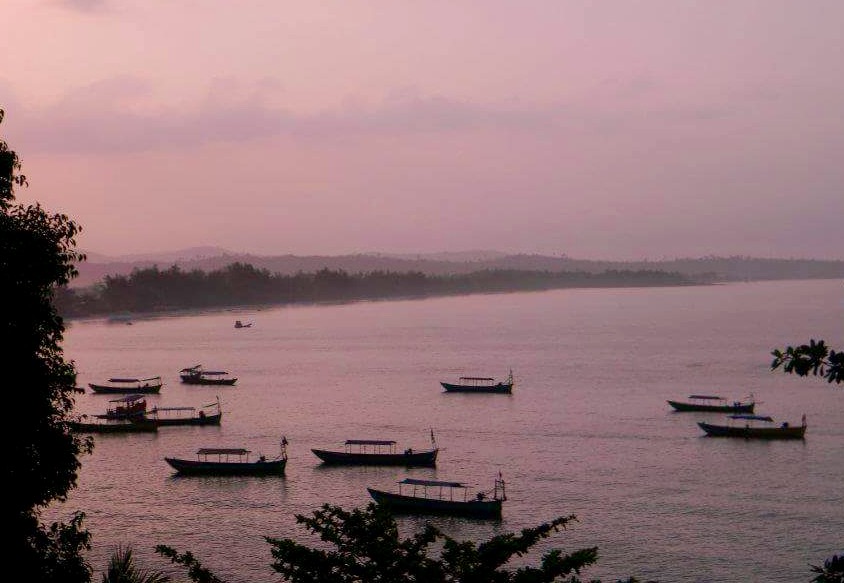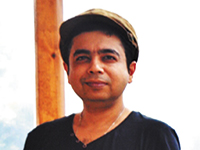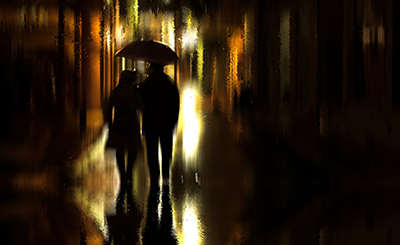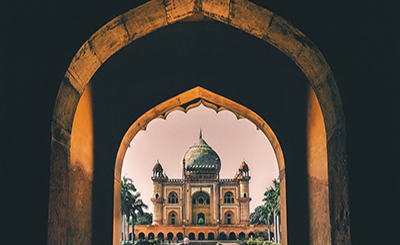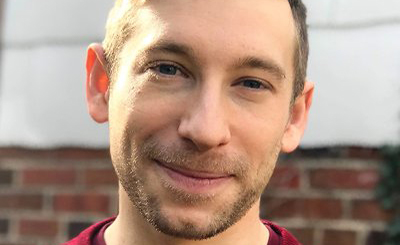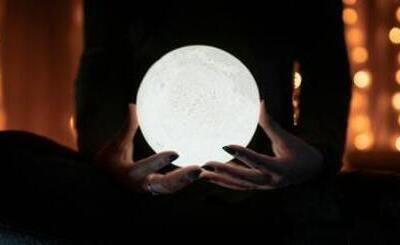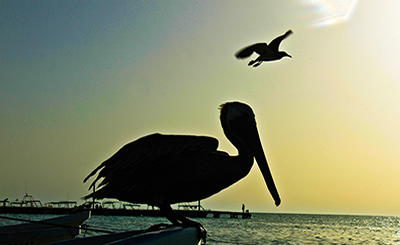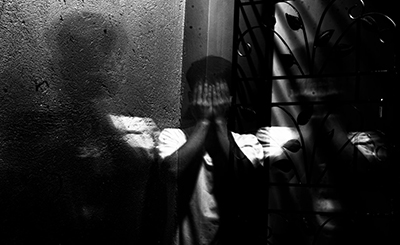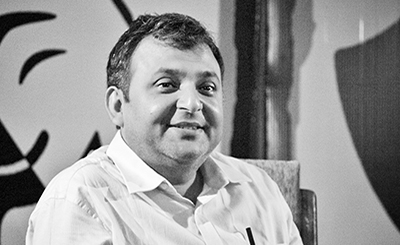I
The Metaphysical Enigma
The thought had occurred to him when he was seventeen; he was on a vacation with his family in the mountains of North Bengal. The day was full of sunshine, but he was on a reflective mood; he had gazed upon the sad eyes of an old snow leopard in Darjeeling Zoo, taken a solitary stroll around the Observatory Hill and had lost himself in the view of the mountain ranges and the rhododendrons. The thought had occurred to him in the evening, and had stayed within his consciousness like a forgotten poem scribbled on the margins of a book that was never opened again.
Seventeen years later, he had a dream that consisted of the following elements: a ship with sails, wild waters of a stormy sea, a beautiful woman inside a stone cottage, a wooden table, four candles and a gold bangle. The emotions of the dream were of adventure and love. He was on a foreign land, when he had the dream. He had woken up early in the morning; the young Spanish woman — he had met at a club the previous night — was still sleeping beside him.
The dream was so vivid that the images kept playing in his mind, as he got up from the bed and went to the balcony that faced the sea. It was just after dawn, the sky and the waters were changing their colour from dull misty lavender to patches of white and blue. He could see the boats near the pier which take travellers for a day trip to Koh Ruisse; Koh meaning an island.
He had arrived at the coastal city of Sihanoukville — located at the tip of an elevated peninsula — from Siem Reap two days ago. Well informed by his guide book, he had checked into an eco-hotel by the sea; the rooms were wooden eco-cottages on a slope of a leafy hill. The sandy beaches were to the north that attracted the bathers. Out here — the Serendipity Beach — was like a forest by the sea. It had no sandy beach. The water crashed upon dark rocks, and the peace of the morning had softened the sound of the waves.
The eco-cottage numbered 13 had to be reached by climbing thirty-one steps. The Spanish woman had slipped last night on one of the concrete steps — touched by a light drizzle; but he was able to grab her arm and save her from a fall. They had met for the first time at The Purple Midget Club, two hours back. She had light brown hair, large eyes, sharp features and pronounced collar bones. Both were solo travellers and only knew of their first names and their nationalities. They had spoken of Cambodia, Spain and India; and also of their home cities — Calcutta and Seville. After four drinks and a dance, the Spanish woman had asked, “My room or yours?”
He had described the eco-cottage within green foliage on a hill facing the Gulf of Thailand. “It also has a breezy balcony with a hammock.”
She had exclaimed ‘wow fantástico!’, smiled and said, “Let’s go. I am sick of this electronic music; let’s hear the music of the sea.”
The sound of the sea is one of most primal sounds on earth. Long before any living creature had gazed upon it and heard its music, the sea has been playing its symphony — conducted by the moon. The roar has the sense of depth, vastness and oblivion; the waves have the qualities of time passing — of emergence and of disappearance — but also, of an eternal return.
They sat on moonlit rocks in silence; the crashing waves sprinkled drops of salty water on them. Then they kissed like solitary souls starved of love — again and again; the thirst for heartfelt love was stronger in them, than mere pleasures of the body.
Then they had gone up to the cottage, made love twice and showered together; she had apologised for being ‘too loud’, and both of them had laughed.
At noon, they went down to the restaurant by the sea that also served as the reception space — with thatched roof and cane furniture — on a wooden platform on stilts.
It was the time for brunch, but they ordered for a late breakfast of baguettes, cheese, eggs and a salad of diced tomato and cucumber, washed down with fresh coconut water with mint leaves and ice, and then, a special blend of Balinese coffee that is mixed copiously with chocolate powder.
During the chat, the Spanish woman said that she had a very strange dream, just before she woke up. “I must tell you about this. This is the first time ever that a person I just met — few hours ago — appeared in my dream.”
“I was inside a room; it seemed to be from a medieval time. There was a mirror on the wall and I was looking at it — the face was of some other woman with Middle Eastern features, but I knew it was me. Then I was setting up the table for a meal as I was expecting someone to come — a lover or a husband. I lighted up four candles, then someone arrived, and it was you.”
At that very moment, he remembered the thought he had in his adolescence. He had an idea of a story: two strangers meet at a foreign land and sleep together. When both of them wake up, the woman tells the man of a dream where he had appeared. The man realises he also had the same dream, but doesn’t tell the woman. They go their separate ways.
“What did I do in your dream?”
“You were dressed as a sailor, a sea-farer, not a pirate or something. But you looked exactly like you do. You presented me with a gold bangle. I felt very happy. We kissed and then we sat at the candle-lit table and ate. That’s all. But it felt very beautiful, very pleasant.”
He realised he also had the same dream, but from a different perspective. It was a wondrous coincidence; something he would have never believed, if it didn’t happen to him.
He thought for a moment, but decided not to tell her of his dream; she might think of him as a liar. He was also enthralled by the other wonder: a story idea he had thought of in his adolescence, had come true in reality, as an event of his own life!
A strange mix of feelings occurred within him — awe, wonder, love and also a faint sadness. This was not the first time that he had encountered a fellow traveller and taken her to his room. He has been travelling solo for a few weeks — twice every year — over seven years now; he had a history of lovers, on the road.
But this time, something else was at work, something more wondrous — a metaphysical enigma — that he himself couldn’t understand. Nothing happens without a cause. What was the cause? How could such an experience happen? How can the experience be explained?
They had walked to the hotel of the Spanish woman; she was leaving for Phnom Penh that very evening. Her flight back home via Bangkok — after travelling in South India, Thailand and Cambodia — was scheduled to
take off the very next evening.
He still had a week in Cambodia before he has to return. It was around twilight, when they went their own ways, amidst a strong sea breeze, and parted forever.
II
The Metaphysical Detective
My name is Robindranath Ray — shortened to Robin Ray. I was born in Calcutta in 1955 to a wealthy joint family of intellectuals, businessmen and debauches. My father died of alcoholism when I was ten years old. I studied philosophy in Presidency College; received a scholarship to Trinity College, Cambridge, where I also learnt German and Sanskrit. My doctoral thesis at the age of twenty nine was on Transcendental Phenomenology of Edmund Husserl & Advaita Philosophy of Sankaracharya where I established links between the concept of Transcendental Ego in Husserl’s phenomenology and the concept of transcendental self-consciousness of Sankaracharya. I have taught in the departments of philosophy in Germany and England. I have published eight academic books and numerous papers on phenomenology (from Greek phainomenon “that which appears” and logos “study”) that is not a philosophy but a method to study structures of experience and consciousness.
All my life, I have concerned myself with the perplexities of metaphysics, and then everything changed when I had a car accident in Hamburg. I spent four months in a hospital; the first twenty-two days, in a state of coma.
When I regained my consciousness, while gazing outside the window and contemplating the changing shapes of passing clouds, I finally realised a truth: I have succeeded as a professor of philosophy, but I have understood very little of life!
A shift started to happen within my consciousness; thoughts on my mortality began to concern me.
I eventually recovered fully; I only carry a slight limp due to an implant that has been inserted in my left leg.
I resigned from my job at the Hamburg University and returned to Calcutta in 2012.
I was married for a while to a German academic in my early forties; I have no children. Three large rooms —
with antique Burma teak furniture and Belgium mirrors — in my ancestral house in North Calcutta still remain as part of my share. But I decided to rent a Spartan cottage in the village of Kolakham where seventy families of Nepali origin — the Rai community – live in relative serenity.
*
Kolakham — facing the snowy peaks of Kabru, Kabrudome and Kachenjunga, on a clear day — is nestled in Neora Valley Reserve Forest in North Bengal at an altitude of 6500 ft. It is reached via Kalimpong from Lava; a narrow bumpy dirt road meander through a pristine dense wilderness of oak, rhododendron, bamboo, pine and cedar.
Kolakham is a bird watchers’ paradise; a steady flow of foreigners with DSLR cameras, binoculars and sound recording devices, and few Indian tourists, have led to the mushrooming of Nature Camps and Eco-huts around the area. The Rai community of the village, harvest cardamom and breed live-stock; but a few of them have opened guest-houses, like my taciturn land lady, whose family runs a ‘4 room village retreat’ — a short walk away from my cottage — where I have my meals.
The ‘village retreat’ also has its own website; the internet is slow, but reliable. I need the internet to stay connected, and receive news of the wider world.
I also bought an ornithologist’s book on Indian birds in Kalimpong; I can now identify many species and their distinct calls. In a usual day, a crimson-breasted woodpecker hammers away at a tree outside my bedroom window, while a golden-throated barbet calls from the branches.
My daily routine — apart from my work — includes a morning walk through the various forest trails. I sit on the old stumps of fallen trees, hear the forest and watch the sunlight streaming through the canopy; in the evenings, I watch the brilliant dazzle of stars. The night sky never looked so mystical from the plains. I feel connected to the universe in a way I cannot explain more clearly than this: I am strung with the cosmos; I am like a sea-creature in an endless ocean.
The forest has evolved my nature; it has turned me into a mystic. I have come to realise that no eternal wisdom can occur, without the touch of nature. Even to get enlightened, Sakyamuni Buddha had to meditate under a tree!
Deep realisations in simple words are occurring to me in this pristine valley more frequently than they ever did, during my life in urban environments.
I have come to conclude that the intellect is a good sub-ordinate but a bad master; intellect can only take you to a short distance. Only awe and wonder — in the heart — can lead to sudden visions, intuitive insights and striking ideas. Nothing else can create those feelings so naturally, than the immersion of one’s consciousness, in the sublime divinity of nature.
*
I have renounced the academic approach to philosophy and the turgid language of utterance. My first non-fiction book for general readers — that I am working on — will gather and comment upon the amazing phenomena that are part of the human experience — all the mysterious experiential occurrences which are ignored without any serious investigation.
Most people don’t reveal their astonishing experiences because they think no one will understand; they also fear scorn and ridicule.
I have ridden myself of all pretences and have recovered the childlike curiosity that is inspiring my investigations. My approach is no longer of an academic philosopher, but of a metaphysical detective.
Fortuitously, a most curious case came to me from a friend of my dear nephew in Calcutta — one who diligently parcels all the books which I require. One month back, they had come to Lava with their friends for a holiday; both of them came to visit me, and had stayed over for a night.
Hearing about my background and my new-found interest in déjà vu, telepathy, uncanny coincidence, metempsychosis or reincarnation, my nephew’s friend — an idealist with a traveller’s heart who ran a small boutique art-hotel, and also aspired to be a writer — told me about his own lived experience of an enigma that was perplexing him.
“Can you help me to understand this?” he had requested after he finished his wondrous narrative, “How can I think of a story that came true as part of my real life? How can two strangers have the same dream from two different perspectives on the same night?”
I had asked him all the questions which I needed to ask; and had told him that I will think about it, and give an answer.
He had also confessed that he has deeply fallen in love with the young Spanish woman; but he has no way to find her, except to go to Seville and wander absurdly in the city streets to look for her.
“I regret terribly that I didn’t take her number,” he had said, “She had asked me whether I would like to remain in touch. I had replied it’s better we hold ourselves in our memory. No point exchanging our contact details, when my life is in Calcutta and yours in Seville — neither of us can relocate. It will cause us pain, since we like each other now; but we cannot ever be together.”
III
The Explanation to the Metaphysical Enigma
Every evening, I have to remember to shut the windows of the cottage; several species of moths try to rush in, attracted by the artificial light bulbs. I have noticed that their numbers drop during a clear full moon night; I have always wondered whether some of them take a giant leap of faith and fly towards the brightest moon.
*
Yesterday, during my walk in the forest, I came to a gurgling stream; I remembered three lines of a poem — Chuang Tzu and the Butterfly — by Li Po.
Who can tell the end of the endless changes of things?
The water that flows into the depth of the distant sea
Returns anon to the shallows of a transparent stream.
While watching the stream, I remembered an uncanny coincidence; on the same day when I had met the young man and heard about the case, one of my ex-students had forwarded a CNN link of a fantastical incident. US Navy veteran Michael Thomas Boatwright was found unconscious in a motel room; when he woke up few days later, he no longer remembered ‘himself’, didn’t recognise himself in the mirror and didn’t speak a word of English; he said his name was Johan Ek, and he said that in Swedish!
The cases of people waking up from a coma and speaking in a new language are not very rare; but to think of oneself as another person of a different nationality, not to recognise one’s face and to forget one’s mother tongue, is an extraordinary phenomenon.
But this can easily be explained by the ancient idea of metempsychosis: the memories of all the living beings — we have ever been — we carry within the unconscious; a person can wake up from a coma with any one of the multitude of past identities.
Deep down in my heart, I feel: we are much more than we are told; nature has many secret laws which we are yet to decipher. Life is a magical enigma.
*
This morning, I sent the following text message to the young man: “....... the story idea came to you as a dream that was later fulfilled like a wish; the secret forces of time — which bring diverse experiences — brought both of you together; the common dream was a sign — a new meeting of old lovers. Dream state is a natural phenomenon; old submerged memories can erupt in dreams. The physical intimacy had triggered the shared emotive memories of a past life.”
The young man replied instantaneously; more messages were exchanged; he displayed his maturity — he neither accepted nor rejected the explanation.
But he wrote, paraphrasing two lines of a Tagore poem, “I feel I have loved her in numberless forms, numberless times.”
Then he wrote, “Thank you for your explanation and for thinking about us. Our reality is always suffused with our dreams. I have an improbable dream that I am acting upon in reality. Crazy leaps of faith are demanded by life to travel in the path of dreams, purpose and love. I have to go now; my connecting flight will leave soon; the boarding has been announced.”
“Where are you going?” I typed.
“Hispalis under Rome; Ishbiliya under the Caliphate of Cordoba; the only river port in that country: Seville.”
